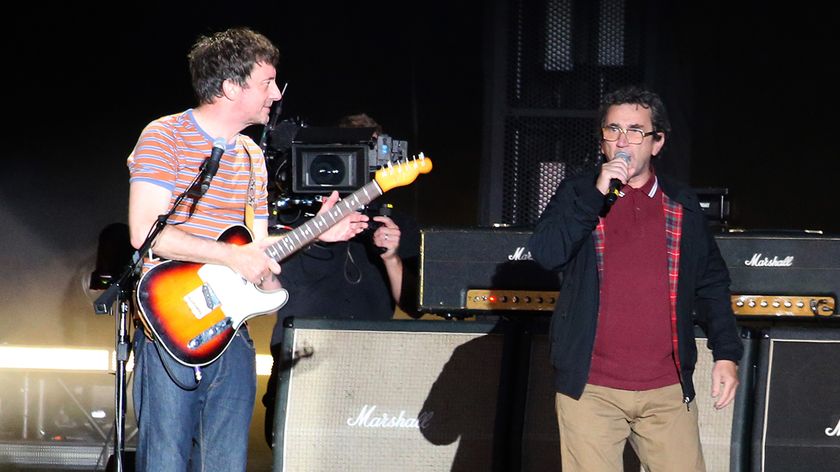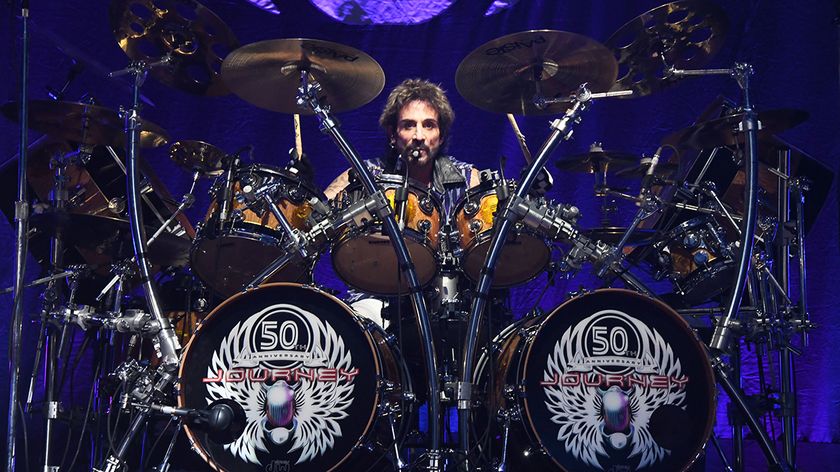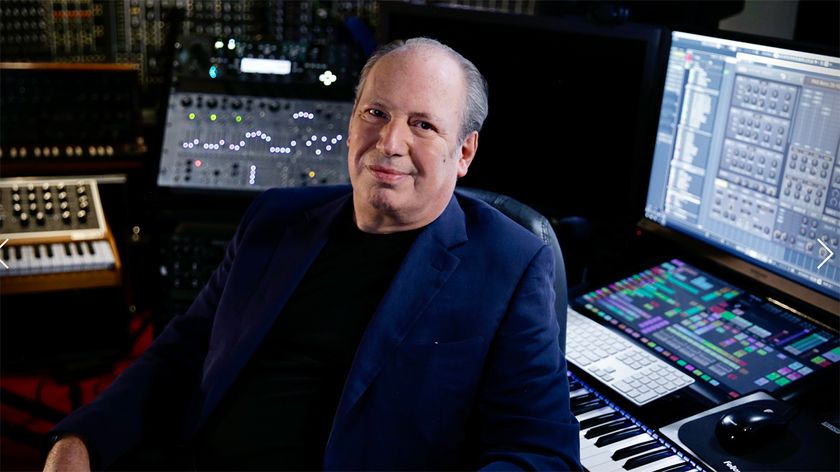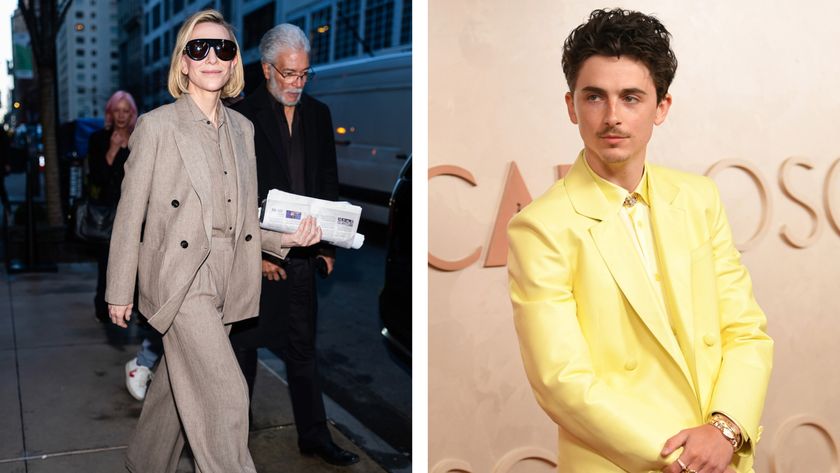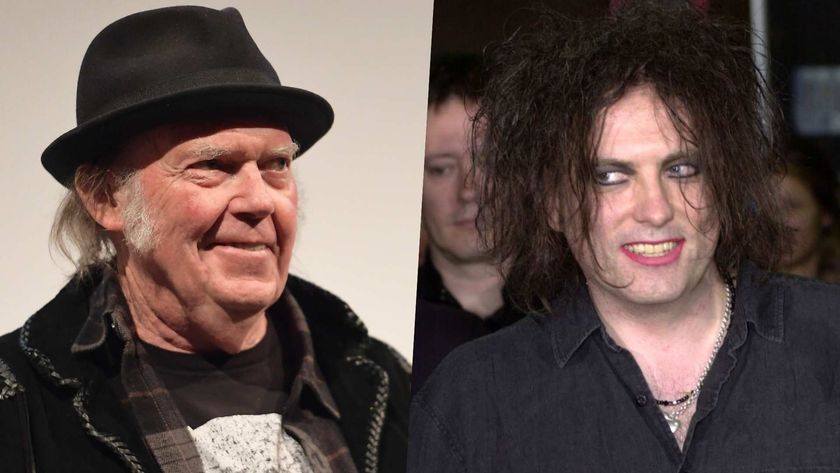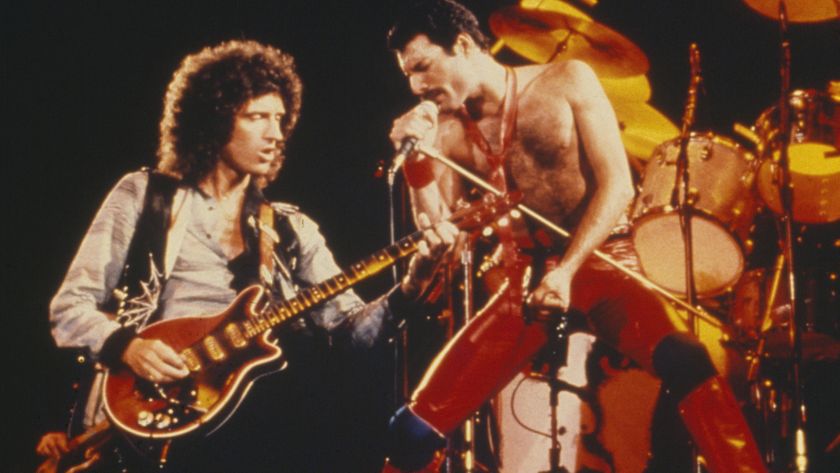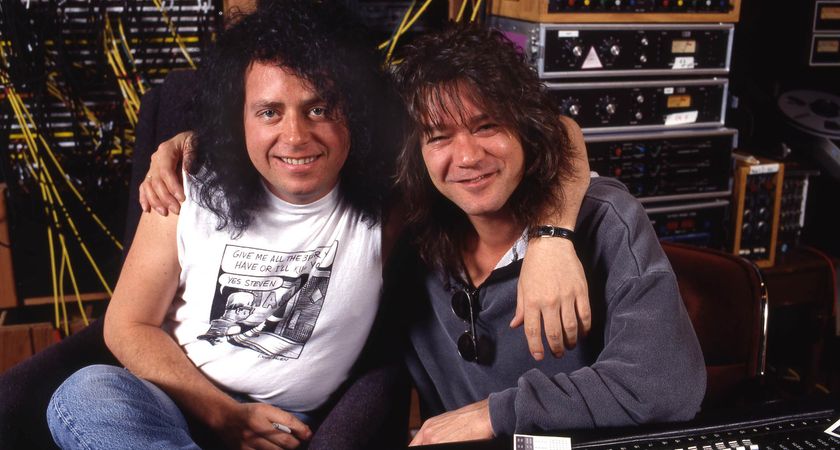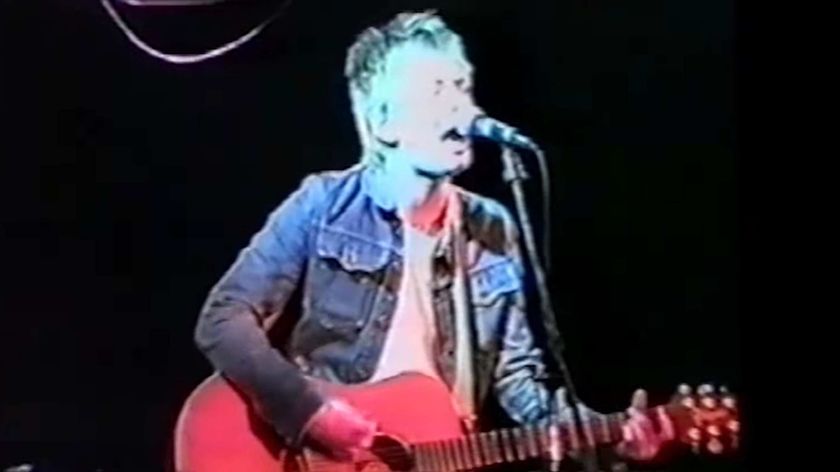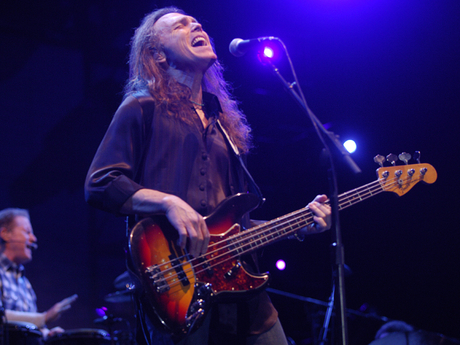
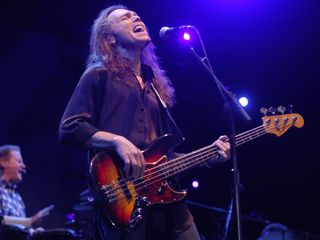
Timothy B. Schmit on stage with a little group called The Eagles in 2008. © Jared Milgrim/Corbis
The Eagles' Timothy B. Schmit can still remember the night he knew he was destined to be a musician. He was 16, getting ready to play one of his first paying gigs, when his father, a musician himself, came into his bedroom for a chat.
"My dad and I didn't talk much," says Schmit. "Our relationship was OK, but not amazing. So there I was, dressed up in my sort of uniform, the clothes my band was wearing at the time. He could tell I was I getting serious. I guess he knew I was going to go for it. So he told me how to handle myself professionally, not to take what people write about me to heart. It meant a lot. I've always held on to that memory."
Nearly 40 years later, Schmit has eclipsed whatever rock 'n' roll dreams he had as a teenager. "I thought only bands like The Beatles played stadiums," he says. "To think that I would play to crowds that same size with The Eagles is absolutely incredible."
Even so, the singer-songwriter and bassist is looking forward to an upcoming, month-long tour of clubs and theaters during which he'll perform gems from The Eagles and Poco (he was a member of that country-rock outfit from 1970-76), along with a healthy selection of tracks from his solo albums, including 2009's Expando - a sparkling release which features guests such as Kenny Wayne Shepherd, Garth Hudson, Kid Rock and Benmont Tench, among others.
Schmit sat down with MusicRadar recently to talk about his musical journey, from early influences to joining one of the world's biggest bands to a solo career that is occasionally interrupted by...one of the world's biggest bands. "I certainly can't complain about any of it," he says. "I'm extremely fortunate to be in the position I'm in."
As a kid and a teenager, what music really shook you up?
Get the MusicRadar Newsletter
Want all the hottest music and gear news, reviews, deals, features and more, direct to your inbox? Sign up here.
"Well, it's funny you say it like that, because Elvis was a very big deal to me. Before him, I do remember Bill Haley's Rock Around The Clock, too - that definitely left an impression. I was pretty young, of course.
"Music's always been a big part of my life. Because of my father, I was always surrounded by music and musicians, and in school, I was in the chorus and I played various instruments. Music was something I was good at, as opposed to other things in school that I wasn't so good at.
"When I was a little older, I got really into folk music. I found a few like-minded friends, and we started playing and doing our folk music thing. We formed our own Kingston Trio-type band. We even dressed like the Kingston Trio. [laughs] It was pretty hilarious.
"It took me a while to get an electric guitar and a bass and amps and stuff. Playing the acoustic guitar was much easier, and more affordable. But I was always listening to the radio and was interested in all the rock and pop music. It was a great time."
So how did you start playing the bass?
"It all began with those same guys, the folk thing we were doing. We got interested in doing shows, and we started to realize that we needed to become amplified, and we needed a drummer, too. We found a drummer and started playing electric tunes. Everybody wanted to play lead guitar, and after a while it became obvious who should play what. I became the bass player, which suited me fine."
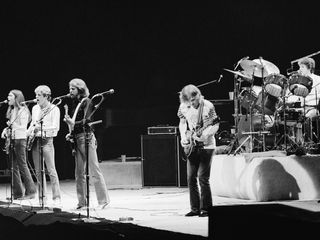
Schmit, left, with Glenn Fry, Don Felder, Joe Walsh and Don Henley (back) in 1980. © Roger Ressmeyer/CORBIS
Was Paul McCartney an influence at the time?
"Absolutely! He was a huge influence. I got to see The Beatles a couple of times. In fact, I saw their last performance ever in San Francisco. The Beatles were massive to me - I learned so much from them. And, of course, Paul McCartney, when it comes singing and playing the bass, he made a big impression. It's so much harder than it looks, but Paul did make it look easy."
You replaced Randy Meisner a couple of times, once in Poco and again in The Eagles. Is he always looking over his shoulder to see if you're there?
"Not any more! [laughs] I guess it's all a strange twist of fate. Actually, I was turned down for Poco in lieu of Randy. After a while, though, he quit - it was right when they were making their first album - and they called me up to see if I was still interested.
"Timing is everything, of course, and in 1977, I got a call from Glenn Fry asking me if I might be interested in joining The Eagles. Randy had quit that band, as well."
Was there any kind of audition process to join The Eagles?
"There wasn't. They had seen me perform a few times already with Poco. Plus, I had played bass on a Linda Ronstadt record with Don and Glenn, so I think they were pretty comfortable with what I could do.
"When they asked me to join, they wanted me for me. It wasn't an audition at all. I was asked to join The Eagles. Oddly enough, it seemed like the perfect choice to me. I thought I was definitely the right guy to join The Eagles. I knew I should be in The Eagles. I don't mean that in a cocky way, I'm just being honest."
But joining The Eagles as a bass player is based on a couple of matters. Not only do you have to lock in with Don Henley, the drummer, you also have to mesh with the band as a singer.
"Absolutely! Being in The Eagles meant having to handle a few things at once. I was not unaware of those issues when the invitation presented itself. I knew it was a very big thing being put in front of me, one of the biggest in all of music. But I knew I could do it. I knew I could fit. In my heart, I knew I was the right guy.
"I'm pretty sure they thought everything through before they even called me. They knew I was playing a similar style of music in Poco, and they knew I was a singing bass player. The whole thing wasn't a big stretch. Plus, they knew I could hit the high notes. If my voice wasn't the right fit, I don't think I would've gotten the call to join."
When you were recording The Long Run, did you sense that the band would break up soon?
"Oh yeah. Well, let me rephrase that - I had a sense of it, but I was in denial. Here's where I was at: I was very excited, I was really aiming to please, and I worked very, very hard. I knew that there was some squabbling - I mean, it was obvious; it couldn't be hidden - but I had no idea how truly serious it was. To me, all bands fought. Another day at the office in rock 'n' roll. I didn't know how heavy the issues were.
"So I did my work and went on a few tours, made that record, The Long Run… I was actually surprised when I got the phone call from Glenn and he said, "It's over." I was shocked and...deeply saddened. Despite the fighting in the band, everything else was going too good. You never think something so big is going to end."
Your first song for The Eagles, I Can't Tell You Why, turned out to be a classic.
"Yeah. It was all such a great ride, I just kept pinching myself. I did work with Don and Glenn on that song - they co-wrote it with me. But it was one of those songs that was just 'there,' you know? It's so simple and bare bones.
"I remember when it was being developed in the studio. I knew it was a great song. I was like, 'Yes! This is an amazing debut for me.' When we finally mixed it, we had a little listening party at the studio. As people were hearing it, Don turned to me and said, 'There's your first hit.' That was pretty cool."
When you presented it to the guys, though, did you think, They can't turn this down - it's too good?
"No. To be honest, my memory is a little foggy. But really, I had no idea at first. I was pretty happy they wanted to work on the song, but I probably had a few other things I showed them, too. You really don't know what's going to be a hit until it's a hit."
Let's jump ahead here. You're going to tour behind your solo record, Expando, which came out in 2009.
"That's right. You know, here's the thing: That record wasn't heard by a lot of people. It didn't get the shot it should've gotten at the time, the best promotion and what not. And the bottom line is, I wanna play. So it might be presented that I'm touring being my latest release, but in reality, the set is Expando-heavy because I really like a lot of those songs."
Kenny Wayne Shepherd played on the song Parachute. What was it like working with him?
"It was great. He's an amazing guitar player, and such a sweet guy, too. He opened some shows for us a while ago. This was in Australia - he was still a teenager. During the recording of this album, I knew I needed a full-throttle kind of guy like him, so I reached out and he said he'd do it. Kenny's brilliant."
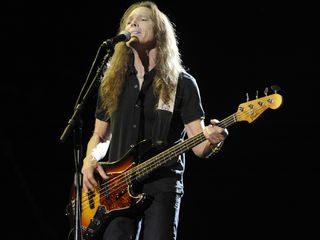
Schmit will tour behind his solo album, Expando, from late November through mid-December. © Tim Mosenfelder/Corbis
On the song Friday Night, you have Garth Hudson from The Band. Do you actually give direction to him, or do you just let him do what he feels?
"Garth is a funny one. He wants direction, but at the same time he lives in his own world. [laughs] He plays in his own world, too. He went off on some tangents. I remember he asked me for blank staff music paper - hardly anybody ever asks that. He tried some stuff that he wrote down. We didn't use it, but I did save what he wrote."
Another great keyboard player, Benmont Tenth, is on the album.
"Yeah, he's unbelievable. Ben's one of those guys who just knows what to do. You play him a song once, and before it's finished he's playing you what you want. He's that kind of guy. He's intuitive and in command of his instrument. Such a nice guy. What can I say? He's a brilliant musician."
Have you seen any Eagles tribute bands?
"I haven't, no. [laughs] I've seen pictures, but never saw the bands in concert. I guess it's a form of flattery. If that's what they want to do, and if it puts food on the table, then more power to 'em."
At this point, do you practice the bass at all? If so, do you have any routines?
"No, I don't practice. I probably sing more than I play bass. I probably don't play until I have something coming up and I have to get in shape. The bass is a very physical instrument. You actually have to build yourself up to it. It's not like playing the guitar."
After you do the Expando tour, what's next?
"I'm probably going to hunker down and do some writing and recording. There isn't a lot of Eagles action in the foreseeable future - that isn't to say that there won't be, but right now it doesn't look like it. I'll do another solo record, definitely. Why not? It's what I do."
Joe is a freelance journalist who has, over the past few decades, interviewed hundreds of guitarists for Guitar World, Guitar Player, MusicRadar and Classic Rock. He is also a former editor of Guitar World, contributing writer for Guitar Aficionado and VP of A&R for Island Records. He’s an enthusiastic guitarist, but he’s nowhere near the likes of the people he interviews. Surprisingly, his skills are more suited to the drums. If you need a drummer for your Beatles tribute band, look him up.
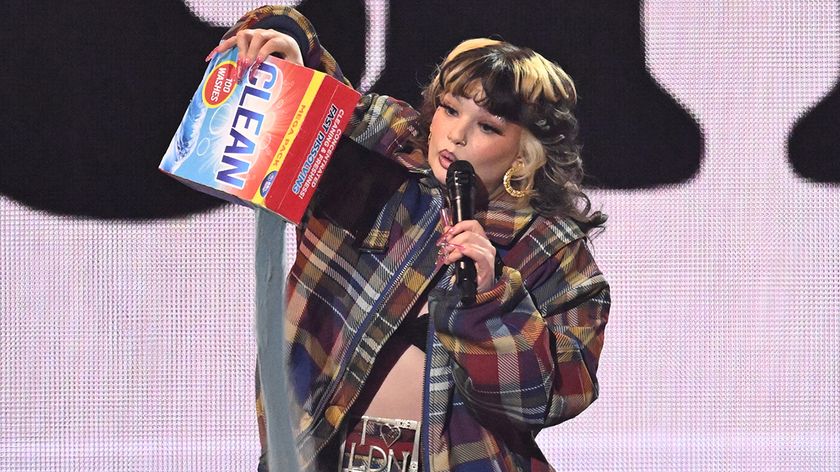
“It was just the C shape, moved up, and it’s literally just that - that’s the whole song”: How Lola Young took two acoustic guitar chords and turned them into Messy, her worldwide hit (with a little help from some classic Yamaha, Korg and Roland synths)
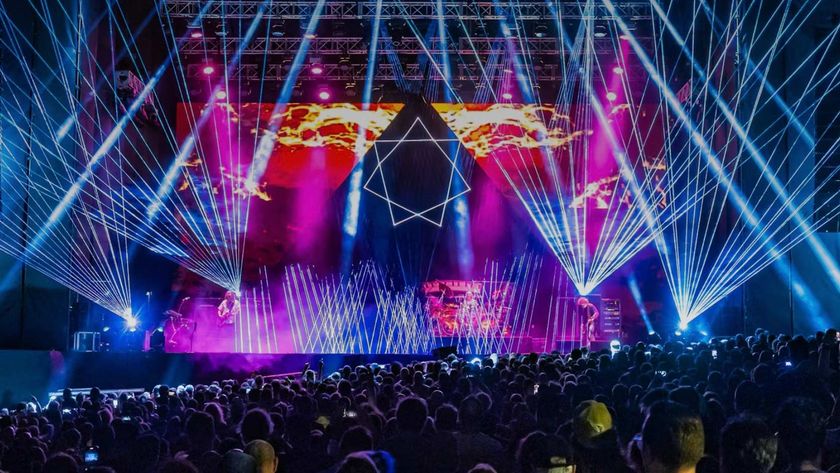
“If you hated Tool fans, this is what you would do...”: Tool fans fire up a class-action lawsuit after the band played some songs twice

